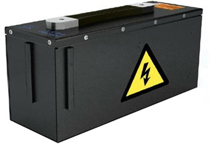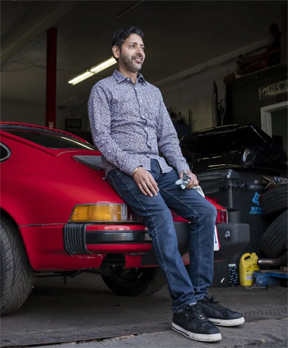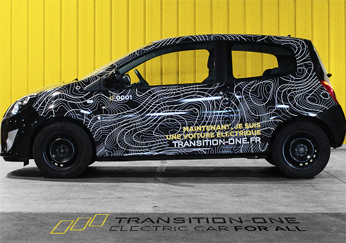Guest blog by Sue Craig.
Speeding down the road to electric vehicles.
One way to create jobs for a low-carbon recovery from COVID-19.
The Canadian government will have to spend a great deal of taxpayer money to help the economy recover from the COVID-19 crisis. How that money is spent will determine whether we all move forward — or backward.
More public ownership is one approach I’d like to see in the whole COVID-19 recovery process. But rather than giving you a whole laundry list of projects, let me highlight just one way I think we could get some real traction towards a future we all deserve.
I’d like to see mothballed factories, including the GM plant in Oshawa, but others as well, tooled up to produce electric motors for installation into existing vehicles. This could work as a nationalized industry or on a subsidized worker/consumer co-op model.
What are the advantages?
Reduced Waste, Increased Efficiency
- There are many, many cars on the road with bodies and frames that could survive for many more years. For example, I recently acquired a 2005 Toyota. Still running, no rust, the passenger cabin is nice and clean, everything works.
- Many of the cars, trucks and buses on the road, though superficially different, are almost identical under the hood, so the mass production of electric engines for retrofitting should be feasible.
- A plant that makes only the motors can obviously turn out more units per day than a string of factories manufacturing, shipping and assembling all the components for a whole car.
- Manufacturing an engine requires much less energy than manufacturing entirely new vehicles from scratch. This process would conserve energy, helping to keep prices affordable.
- Retrofitting older but still viable vehicles will also conserve a great deal of energy that would otherwise be expended in junking the old vehicles: reclaiming whatever can be salvaged from them and dumping what cannot be reclaimed — plastic dashboards, seats, and so forth.
Jobs
- Laid-off auto workers would be back at work.
- This would provide work not only in factory towns but in communities everywhere as traditional auto mechanics with their own shops or working in dealerships would be retrained to retrofit old cars with the new electric motors and to maintain electric cars.
- Viable traded-in gasoline-powered vehicles could also be sent to a large central facility for retrofitting.
- Gas stations would gradually convert to charging stations.
- Jobs would be maintained or increased producing parts for the ongoing maintenance of older vehicles, and for the mechanics and body-shop workers who install them.
Consumers and the Environment will benefit
- Buying an electric car would be much cheaper for the consumer. The car owner could potentially drive to the auto repair shop in a gasoline-propelled vehicle one day and drive away the next day in a newly electric vehicle
- This could accelerate the transition to electric vehicles tremendously
The benefits would be spread throughout the economy, with workers, small business owners and consumers all better off for it. The environmental benefit of reduced greenhouse gas emissions and less waste could be huge.
Not for (much) profit
- Clearly, although there will be great benefits to society as a whole, there will be less profit, as we think of it now, in this approach. Big business will oppose it (to put it mildly).
- This is why only government can make it happen, either by nationalizing and running factories or (probably better) by funding co-ops dedicated to providing good products and good jobs, with profits allocated to improving both.
- Let’s not forget that the tar sands project could never have come into being or survived as long as it has without enormous amounts of ill-advised government subsidy. Let’s start spending smart!
Car retrofits: Not just a pipe dream!
Internal combustion engines out – electric engines in!

This Toronto businessman retrofits classic cars with electric motors.
The CBC did a report about Davinder Singh and his company, Epic Car Conversions in 2019.

In France, a company called Transition-One helps make the leap to electric.
Transition-One explains:
Turn your small petrol or diesel car into an electric one. You can immediately save money on fuel, maintenance and CO2 emissions.
Transition-One supports you in your transition to electric mobility for a cleaner planet.
Retrofit or electric conversion is now authorized in France

Garage Converting Classic Cars to Electric Vehicles
is a 6 minute Youtube video about EV West, a San Diego-based shop that has been converting cars since 2012 and offers conversion kits for vehicles ranging from vintage Karmann Ghias to Volkswagen buses.
Owner Michael Bream says, “Every single car we have converted here, we have made more powerful…” The shop is powered by solar panels, which also charge the batteries for their vehicles.

Governments can make this happen! Especially if we start now.
There’s no going back to the old ways.
What the new ways are and who benefits from them has to be top priority for government.
There is no time like the present to be thinking big.
About the author
Sue Craig is a long-time activist in politics, the union movement and the environmental movement. She is a retired member of the Ontario Public Service and is a former journalist.
Follow PCM on Social Media